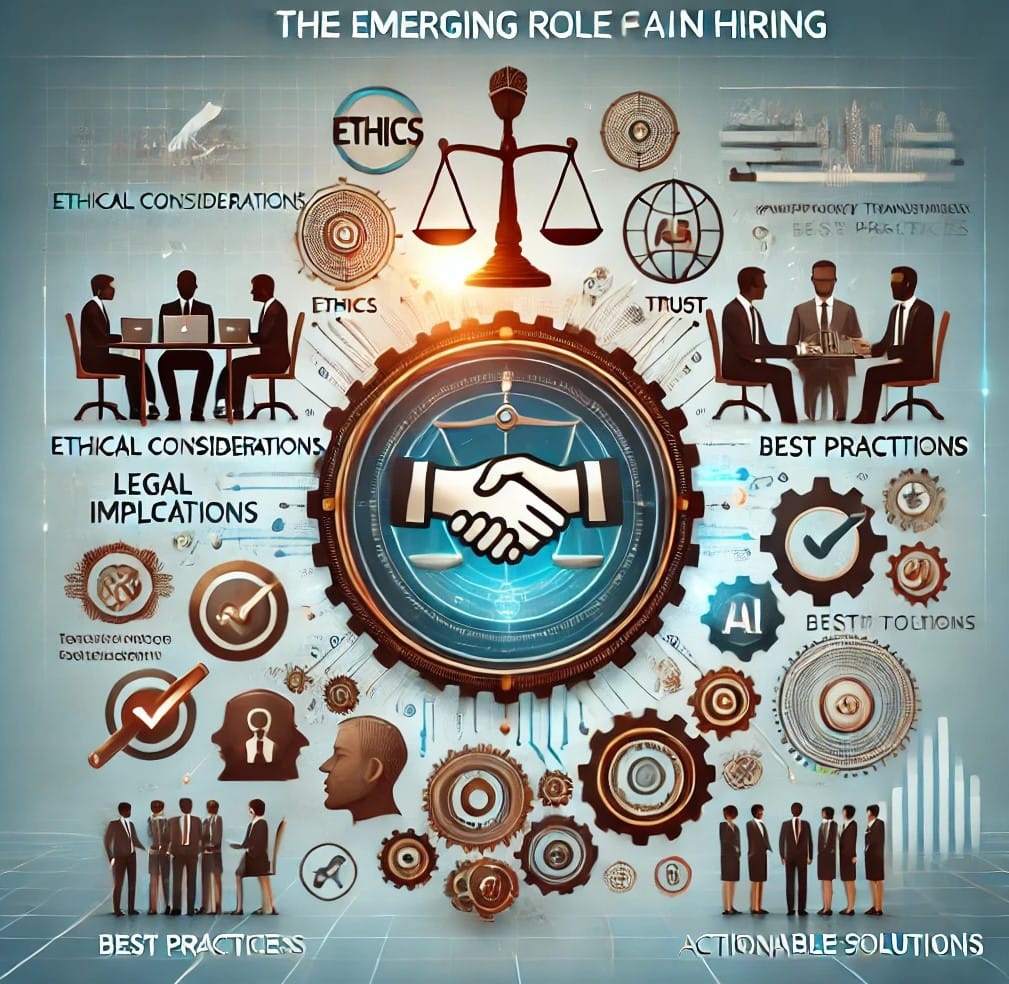
AI as a Game-Changer in Talent Acquisition
The role of artificial intelligence in hiring is no longer speculative—it’s here, and it’s transforming how organizations identify, evaluate, and select talent. In leadership recruitment, where the stakes involve shaping organizational culture and strategy, AI brings both promise and complexity.
The Promise of AI in Hiring
- Enhanced Candidate Discovery:
AI-driven tools can search beyond traditional databases, analyzing public information like industry contributions, patents, research, and even multimedia appearances. This widens the pool of candidates to include hidden gems who may not actively be seeking opportunities. - Data-Driven Decision Making:
By integrating large-scale data analysis, AI provides insights into a candidate’s career trajectory, skill development, and even potential future impact. For leadership hiring, this means moving beyond credentials to understand the candidate’s strategic influence. - Bias Mitigation (When Done Right):
AI has the potential to reduce unconscious bias by focusing on objective criteria like experience, accomplishments, and skills. However, this depends on the fairness of the algorithms and the data they are trained on.
Challenges and Controversies: What You Need to Know
AI in hiring is not without its critics or complexities. Recognizing these challenges is crucial for its responsible adoption:
- Algorithmic Bias:
AI systems are only as fair as the data they are trained on. If historical hiring data is biased, AI can perpetuate those biases, favoring certain demographics or excluding others unfairly. - Privacy Concerns:
AI tools often analyze public data, but where is the line drawn? Potential candidates may feel uneasy knowing their social media posts or public speeches are being scrutinized. Transparency in AI use is essential to maintaining trust. - Overreliance on Technology:
While AI excels at pattern recognition and data analysis, it lacks emotional intelligence and relational skills—qualities critical in leadership hiring. Overreliance could lead to missing key human factors like empathy or cultural adaptability.
A Balanced Integration of AI
The key to successful AI adoption lies in balance. Organizations must combine the analytical power of AI with the relational expertise of human professionals to create a comprehensive hiring process.
Here’s how:
- Transparency: Clearly communicate to candidates how AI is used in the hiring process and what data it evaluates.
- Ethical Use of Data: Limit AI analysis to relevant, job-focused data while respecting candidate privacy.
- Human Validation: Use AI as a first pass, not the final word. Human recruiters should validate AI-generated insights through interviews and references.
A Look Ahead: The Evolving Role of HR and AI
AI is redefining the HR profession, positioning HR professionals as strategic partners in leveraging technology for better decision-making.
- From Administrators to Strategists: HR teams can shift from managing processes to driving innovation by using AI tools effectively.
- Fostering Candidate Trust: HR professionals will play a pivotal role in maintaining transparency, ensuring ethical AI use, and building trust in the hiring process.
Key Takeaways
AI in hiring is both an opportunity and a challenge. It offers unprecedented insights and efficiencies but requires careful, ethical implementation. By striking a balance between technology and human expertise, organizations can unlock its full potential while navigating its complexities responsibly.
Contact: peter@fullspectrumleadership.com
Peter Comrie of Full Spectrum Leadership
Tags: #AI, #AI Integration. #Leadership, #Future of AI, #Peter Comrie

